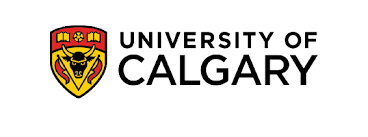University of Calgary: Indigenous youth explore the world of veterinary medicine thanks to new grant
In 2018, a group of faculty, staff and graduate students from the University of Calgary’s Faculty of Veterinary Medicine (UCVM) set up a youth outreach program on the Stoney Nakoda Nation with the goal of sharing veterinary medicine as a potential career option with Nakoda youth.
Now, thanks to a grant from PetSmart Charities of Canada, the partnership between Stoney Nakoda and UCVM will be expanded to build a program that will include ongoing Nakoda youth engagement and mentorship, while also providing veterinary services in the community. This relationship will begin in the first year for vet med students and continue throughout their degree.
“Our third-year vet med class will provide wellness clinics for companion animals on-site in Morley in partnership with community members, and a fourth-year clinical rotation will have students providing veterinary services for animals. Interested Nakoda youth will have an opportunity to help with both clinics,” says Dr. Susan Kutz, DVM, PhD, a professor at UCVM.
In addition to providing care for animals in the community, the funding from PetSmart Charities of Canada will broaden the experiences of vet med students through engagement and shared learning experiences with the community.
“By learning together, vet students develop stronger relationships with First Nations Peoples, better understand the relationship Indigenous Peoples have with their animals, and, as a result, become better veterinary practitioners,” says Dr. Tessa Baker, MSc’18, DVM, a postdoctoral associate, who, along with Dr. Cathy Wagg, DVM, a senior instructor at UCVM, partnered with the community on the initiative, which was guided by an advisory council of Elders, educators and community members.
Julia Grochowski, a second-year veterinary student, describes the experience she had at Morley Community School: “This experience was precious for our class in so many ways — not only for the chance to share our knowledge and become more confident in the skills we’ve learned thus far, but also to understand more about Stoney culture, traditions, history and language.
It is so integral that we, as future veterinarians, learn about the land and the people that have cared for it since time immemorial so we can serve the community in the best possible way.
Morley Community School student Lecavaler Simeon enjoyed getting a preview of a possible future career path: “My favourite part of the vet experience was looking at different diseases through the microscope and learning how to wrap an animal’s leg if the animal is injured.”
Canada is currently facing a shortage of veterinary professionals and Alberta’s rural community is especially in need of large-animal doctors. To meet continued demand for quality, accessible care, more young people need to be inspired to pursue careers in veterinary medicine, says Kate Atema, director of Community Grants and initiatives at PetSmart Charities of Canada.
“We’re proud to support this meaningful effort to help veterinary students and young people partner to make an impact on pets, people and communities,” she says.
The program will include first-year vet med students viewing the documentary Ahomapénî; Relations and Rez Dogs, produced by the Stoney Nakoda Audio Visual Club. The documentary discusses community perspectives on their dogs and how their dogs are viewed by outsiders, with guided discussions with AV club members and a Nakoda Elder.
Members of the second-year Doctor of Veterinary Medicine class will deliver the youth outreach sessions at the schools and hear from Elders and youth about traditional relationships with, and language around, animals in a two-way learning experience.
UCVM hopes that outreach programs such as this one will inspire young minds to consider veterinary medicine as a potential career path.

